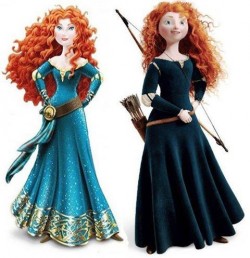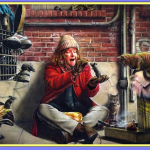On Friday, March 15, the United Nations’ 57th Commission on the Status of Women (UN CSW) will come to an end. Then we find out that either the member states have managed to craft agreed conclusions and resolutions on this CSW’s focus — the elimination and prevention of all forms of violence against women and girls — or that for the second year in a row they have failed to reach meaningful consensus.
The CSW is an annual international gathering that takes place in New York City. Attended by representatives of governments from around the world, as well as thousands of delegates from non-governmental organizations, it is the primary international body that is focused entirely on women’s equality.
Some women who attend CSW gatherings and speak of their experiences will return home after the UN CSW and face violence in direct response to their participation in this event, to their advocacy efforts.
The CSW is rooted in a human rights-based framework and serves as a crucial mechanism to evaluate what progress has been achieved in the advancement of women and girls and to set concrete international gender-based policies and standards where inequality persists.
Each CSW has a theme and, ideally, member states reach agreed conclusions on the theme, with those conclusions including resolutions and recommendations to be implemented by stakeholders (both governmental and civil).
This gathering is important, both concretely and symbolically. The CSW is as old as the UN itself, and while its continued existence is a testament to the persistent inequality that women and girls live with globally, it is also a reflection to the international community’s ongoing commitment to addressing that inequality.
It also serves as an opportunity for many women and girls who have suffered most viciously under this inequality to bear witness to their pain, to the ongoing violation of their human rights, in front of the international powers that be and to demand better.
Tribute is also paid at CSW to women and girls who cannot be present to tell their own stories, because they do not have the financial resources to attend, because they have been denied travel documents, or because they have been killed.
Stories that have pervaded media around the world this year are being told and retold at CSW: that of Malala Yousafzai, the young Pakistani girl who was shot in the head and neck because of her advocacy work on women’s rights; that of the Delhi gang rape case; and multiple accounts of female partners of male sports heroes being murdered.
The telling of these stories comes with a price. Some women who attend CSW gatherings and speak of their experiences will return home after the UN CSW and face violence in direct response to their participation in this event, to their advocacy efforts. There will be women who attend and speak who will not live to see the next UN CSW.
This truth is horrifying and infuriating — but it must not bring us to a standstill.
I had the privilege of attending the first week of the UN CSW with my executive director as a member of YWCA Canada’s delegation, thanks to support from YWCA Canada and our local United Way.
While I listened to stories about incredible levels of violence and I learned about ongoing impunity for human rights violators, I left with a renewed belief that violence against women and girls can be reduced, prevented, and ultimately eliminated.
I saw presentations about life-saving community campaigns that had been expanded in scope. This helped me better understand how the violence-prevention work we do in New Brunswick can have a much bigger effect that we might ever imagine.
I have a new understanding of how the gender-based justice work we engage in here in Moncton, in New Brunswick, and in Canada truly does support women all over the world because our own insistence on women’s full and equal participation in society, even when it is specific to the Canadian context, serves as a statement of solidarity.
In short, I am more committed and equipped than ever to work to help end violence against women and girls. This isn’t in spite of the "horrifying and infuriating" truths that emerge around the UN CSW, but because of them.
Soon we will see whether the member states of the UN have been compelled to take coordinated action on violence against women and girls, or if they remain at the same stand still that prevented them from adopting agreed conclusions at last year’s 56th UN CSW.
 Beth Lyons is YWCA Moncton's Associate Director. Her column alternates with that of Jody Dallaire and also focuses on social justice issues and women’s issues.
Beth Lyons is YWCA Moncton's Associate Director. Her column alternates with that of Jody Dallaire and also focuses on social justice issues and women’s issues.




